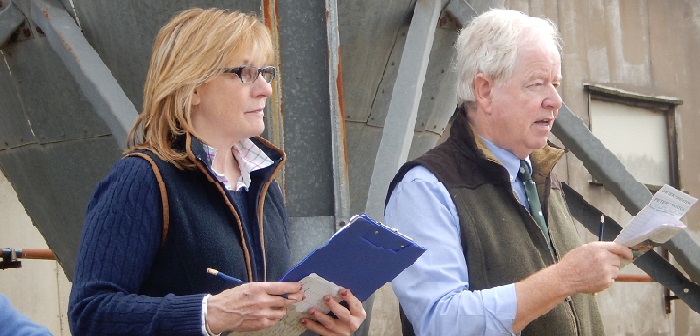Friday was a routine day for sellers, although sadly many are still operating at well below COP levels, but are not in such a bad place as many UK dairy farmers are (yet).
The SPP gained slightly and now stands at 133.25p, and most spot quotes were matching or close to contract base prices with spot bacon traded in the 130p/kg to 133p/kg region. But, with numbers on the tight side, some shrewd sellers may have a chance to squeeze a penny or two more if any buyers come on late in the day looking to top up pig numbers next week.
The euro ended the week marginally firmer than seven days ago trading on Friday at 70.93p.
Although most EU mainland pigmeat prices have continued at stand-on levels, an improvement in the value of the euro would work wonders as far as cull sow prices are concerned, with the latest quotes at similar levels in the 50p/kg to 52p/kg region, which represents a miserable return to breeders who are either looking to replace worn out sows with less worn out gilts or, in some cases, leave the industry.
The weaner market also remains subdued, but the latest AHDB 30kg ex-farm weaner average moved up from £43.84/head to £45.45/head, whereas the average value of 7kg weaners hardly moved and remains at £33.11/head.
The stop/start nature of the UK harvest has been reflected on the futures market, where November 2015 feed wheat traded at £121/t and March 2016 at £124.60/t, but new-crop wheat has been quoted as low as £107/t in some regions.
On a more global basis, hot and dry weather across Europe has led to a reduction in estimated cereal yields, but in the US no shortage of spring wheat is expected.
Other than marriage, feed buying decisions are among the most important that any pig producer can make, and time spent in the office following the markets and possibly hedging feed positions is seldom wasted.
And finally, market research evidence is that there seems to be less consumer interest in welfare friendly pork and 70% of consumers generally put price above animal welfare, but half of the participants in the survey would stop buying products from a company that had been found to be acting unethically.
With reported cut backs in interest for Freedom Food (now RSPCA Assured) pigs in the UK, margins earned on high-welfare pigmeat will continue to be eroded at the expense of hardworking producers and the pigs themselves.




